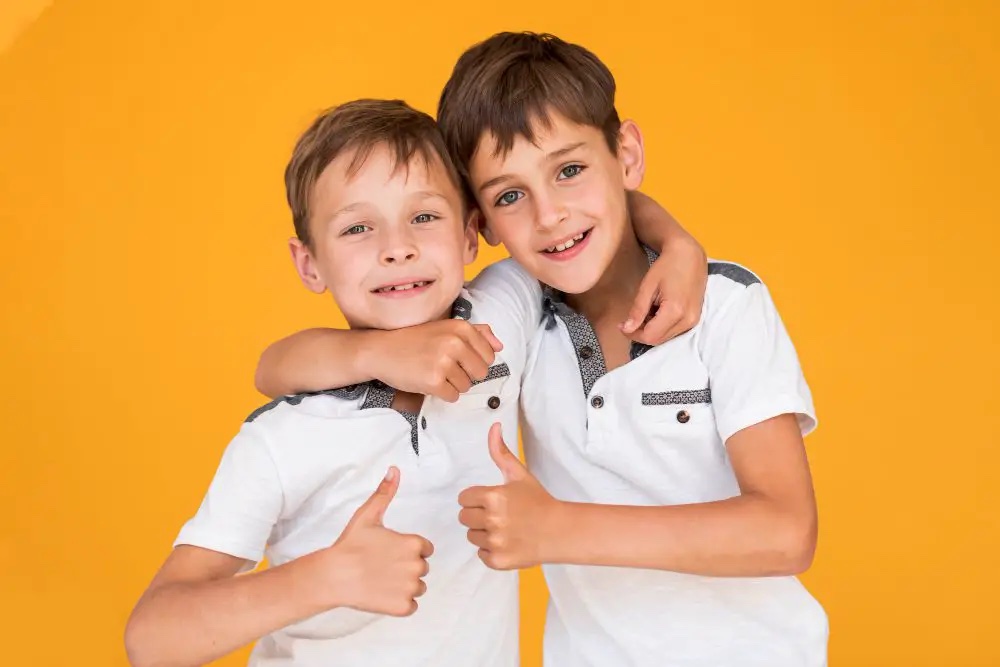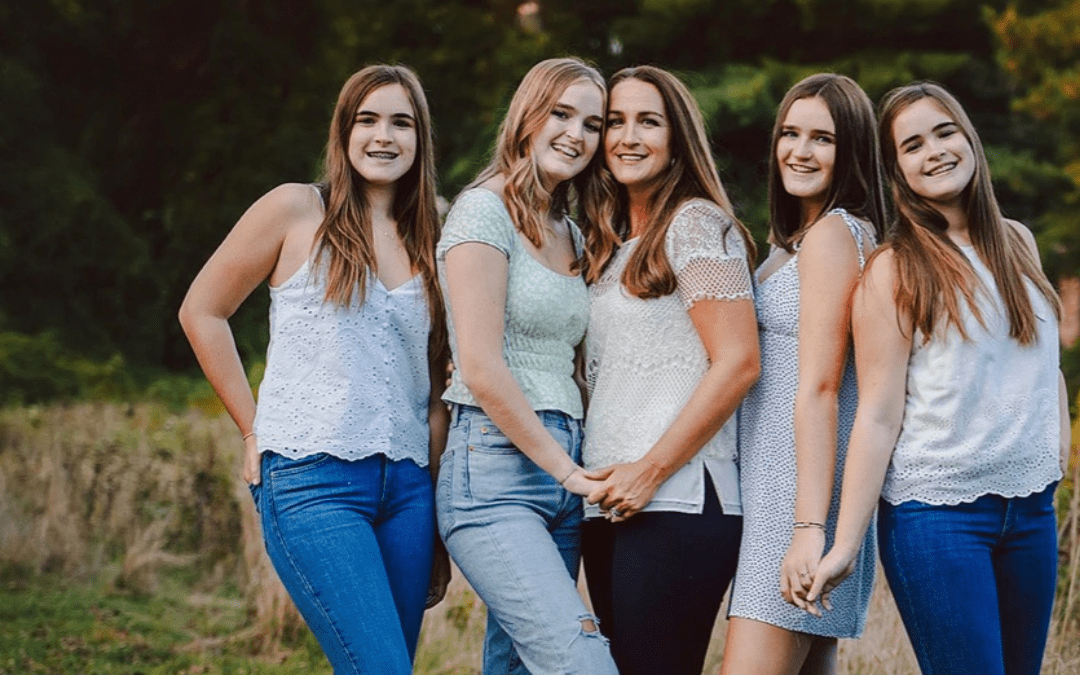
In this article, I wanted to share my personal experience of how birth order affected the personality of my two boys. I took my two boys, Logan (4) and Landon (2), to the park this evening. I watched in awe as Landon climbed a ladder onto the playground. He wasn’t the least bit apprehensive. Instead, he confidently put his foot on the rung, looked at me, smiled, and said, “Mommy, Hulk, strong!”
Shortly before his first birthday, we nicknamed him Hulk Smash. It seemed fitting then; he was always throwing things, smashing them, or being generally destructive. But always with a big smile on his face.
After the little one made his way onto the playground, I watched Logan climb the same ladder, apprehensive and nervous. “I don’t want to do that,” he said as he climbed down, defeated. “But buddy, I know you can do it,” I encouraged him. It didn’t matter; he had already accepted that he couldn’t and found another way onto the playground.
While this wasn’t a significant incident, it stopped me in my tracks. I’ve been observing these different behaviour patterns with my boys. Landon wants to do everything himself. When we offer to help, he stubbornly says, “I got it,” whereas Logan says, “I can’t,” and wants us to help him before trying things.
I have always heard younger siblings are more daring and develop faster physically because they try to keep up with their older brother or sister. But how much of this lack of confidence and apprehension was based on birth order, and how much was based on my parenting?
I’m sure it’s not uncommon for parents to be overly cautious with their firstborn children. In Logan’s case, this may have been further amplified by the fact that I was riddled with post-partum anxiety, triggered partly by my low milk supply and breastfeeding struggles. Early on, I feared that I would somehow ruin him or that I couldn’t provide the care and support he needed because I couldn’t breastfeed. At one point, it got so bad that I couldn’t even hold him without trembling in fear.
I realize now that these inadequacies were all in my head, but I can’t help but wonder: did these fears manifest into me being an overly-protective parent and causing him to lack confidence?
When Logan was little and fell or bumped his head, I’d immediately panic and assume the worst. I’d ask my husband if I should take him to urgent care. Drew, the ever-confident former Army Medic, would always assure me he would be fine. I hate to put this in writing, but my husband was right.
With Landon, my response is significantly less dramatic, and after he falls, he generally gets himself up and assures us, “I’m OK!” So the question is, is he a different child of his own volition, or is he a different child because I’m a different mother now?
It’s not just his confidence and daring behaviour; I have also noticed that Logan tends to get very upset and be hypercritical. Now, granted, mood swings are expected at this age, but guess who also tends to be very hard on themself? So, hi pot, it’s the kettle calling.
I began to wonder how much of their behaviour was based on birth order vs. how I treated them. So, like any worried mother, I took to Google for some answers on key differences between first- and second-born children.
According to Scientific American, based on a study from the 60s, compared with later borns, firstborns are less likely to participate in dangerous sports because of fears of physical injury.
According to National Physicians Center, second children tend to develop opposite traits of the firstborn. So maybe this is why Landon is not only more confident and daring but also more easy-going and less sensitive and emotional.
After more digging, I found an article from the Independent about a Swedish study. It found that firstborns have more favourable personality traits, including openness to new experiences, conscientiousness, extroversion, friendliness, and greater emotional stability.
I quickly realized that I could easily go down a Web MD-like rabbit hole and find conflicting studies that either confirm or deny my neurosis. The fact is that Landon and Logan are two different children, I am a different parent the second time around (thanks in part to anxiety meds – shoutout to modern science), and they are too young for me to pull out the DSM and diagnose them with any number of things.
No matter what I do, one or both of them may need therapy in the future. And honestly, good parents or bad parents, we should all probably go to therapy at some point in our lives.
So like most parents who just want to do everything they can to give their children the best chance for a happy, successful life without denying them experiences due to fear or worry, here’s my conclusion:
For now, Landon is much more easygoing, confident, and daring. But that doesn’t mean I can’t continue to help Logan build confidence and choose my words and actions wisely to help him believe in himself and learn what he’s capable of doing.
And just because he’s a very emotional four-year-old (which I’m sure is incredibly rare) doesn’t mean that there’s anything wrong or that I have caused this to happen. Who knows, Landon could grow more emotional as he gets older, and then I can worry about messing up both of them emotionally and psychologically.
But doesn’t the fact that I’m writing this blog post and looking up scientific studies at 11 pm confirm that I want nothing more than my kids to have the best possible life, and I am not intentionally trying to influence either of them negatively? And, if they can get my negative qualities through osmosis, then doesn’t that mean they could also inherit some of my positive ones, like my comedic timing and wit?
Furthermore, I know I’m not the only mom who has lost sleep, worried that her actions may be detrimental to her kids’ lives. But you know what I would say to a fellow mother? “You are doing the best you can. You love your children with your entire being, and it’s reflected in everything you do, even when you screw up. You’re not perfect, and your children don’t need you to be.”
So, if I can lovingly let another mother off the hook, shouldn’t I be able to show myself the same compassion? For tonight, at least, I can go to bed knowing I love my sons beyond measure, and I’ll always do everything I can to be the best possible mother I can be.

Maile Timon is a mum of two. When she’s not writing she enjoys spending time with family and hiking. Follow Maile on Instagram: @mailetimon



Comments (0)